The Nation Knows Him as the Hero of 26/11. She Remembers Him as ‘Papa Who Brought Home a Puppy’
“It was morning, like any other. I had no inkling that as the day progressed, my smooth-sailing life would hit a rock that would jolt me so violently that I would be wrecked from within, for a long time to come.” — Jui Karkare Navare
A story can’t exist in silos, is what Jui Karkare Navare learned as a child. She used to write for the children’s magazine ‘Tinkle’. By the end of the story, she felt readers should always have a better semblance of their protagonist than they did at the start.
And, her knack for achieving this hasn’t waned one bit, I think to myself, as I (finally) put down my read ‘Hemant Karkare: A Daughter’s Memoir’.
It’s been four hours of feverish flipping through this vivid retelling of the life and times of Hemant Karkare, the chief of the Anti-Terrorism Squad in Mumbai, and the bloodcurdling events of 26 November 2008, when Mumbai was rattled by a series of terrorist attacks.
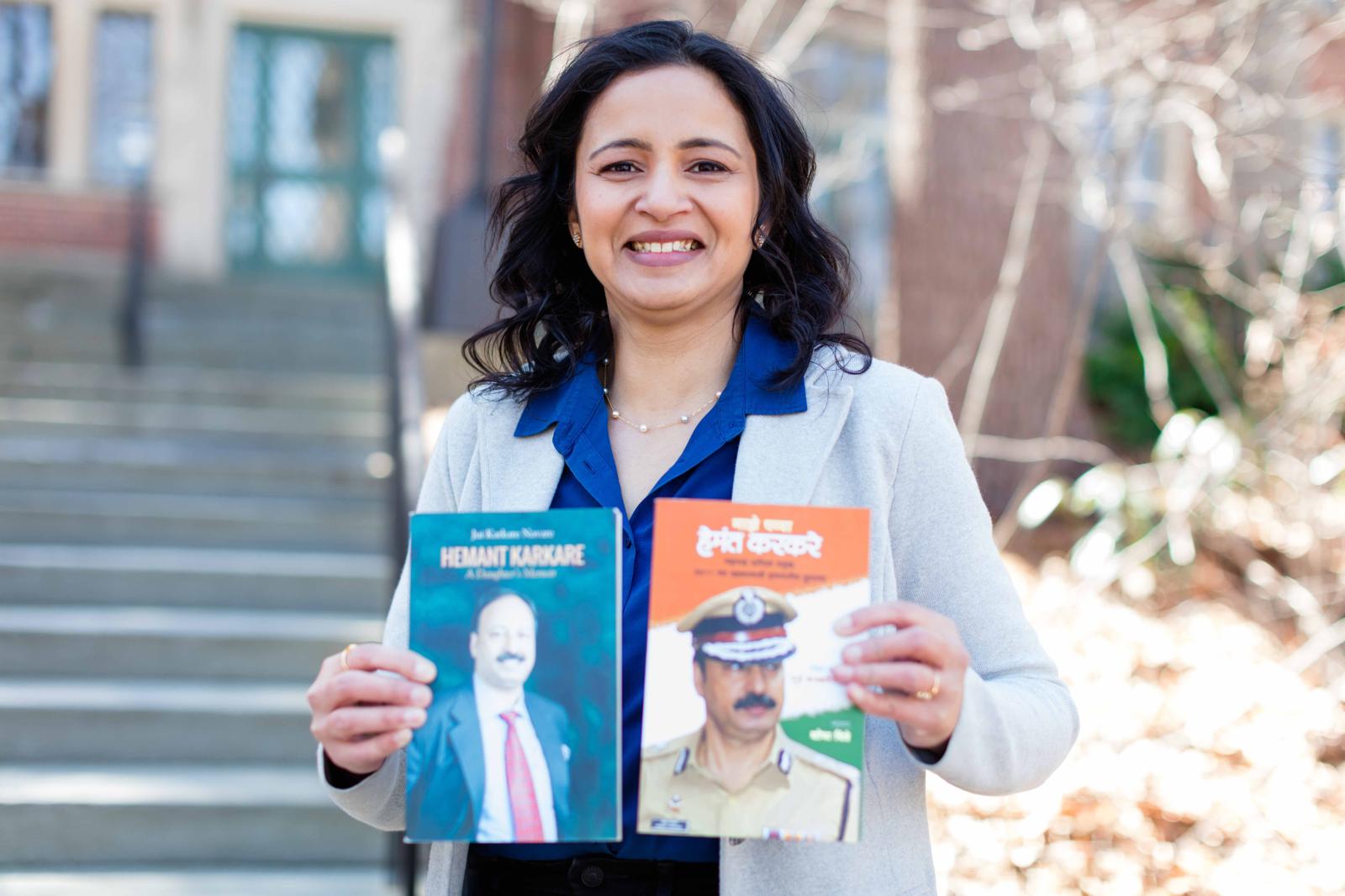 Jui Karkare Navare has authored a memoir on her father Hemant Karkare, who was martyred in the 26/11 Mumbai terrorist attacks
Jui Karkare Navare has authored a memoir on her father Hemant Karkare, who was martyred in the 26/11 Mumbai terrorist attacks
But, as I virtually flip the last page — the memoir is available on Kindle — I shed the feeling of being a stranger in the sea of Karkare’s admirers. The memoir does that to you. It sucks you in. It holds your hand, not letting go for even a second as it takes you down a memory lane that a daughter has built for her dad, painstakingly, word by word.
The memoir doesn’t promise an easy read. It will confront you with the truth, causing emotions to resurge. But don’t stop. The antidote is to keep reading, I figure; at every bend, Jui delivers a promised anecdote, think of it like a metaphorical hug.
I was 10 years old in 2008 when the series of coordinated terrorist attacks, complete with machine gun and grenade assaults, sent tremors through my city. Not old enough to comprehend the gravitas of the chain of events — I won’t deny the dystopian visuals on TV terrified me — I remember earnestly praying: God, please let my Dad return home from work safely.
Little did I ever imagine that, miles away in Boston, another daughter was praying the same prayer.
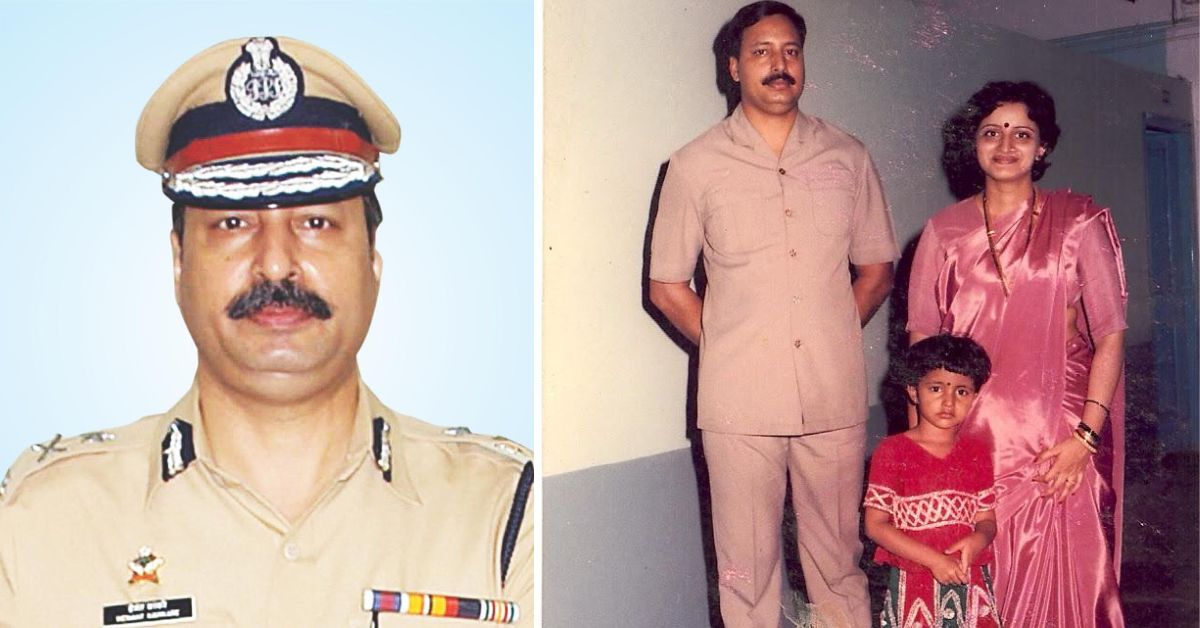 Hemant Karkare was once posted in the jungles of Chandrapur, a district in eastern Maharashtra with a history of Maoist insurgency, but despite a high pressure role made time for his fatherly duties
Hemant Karkare was once posted in the jungles of Chandrapur, a district in eastern Maharashtra with a history of Maoist insurgency, but despite a high pressure role made time for his fatherly duties
Jui’s dad did not return home that day. He was martyred in the terror attacks.
Life, since then, to her, has felt like a giant time warp; the years dragged on, and grief overstayed its welcome. While Jui’s mental calendar matched pace with the world’s, it often found itself flipping back to 2008, running a hand across 26 November, attempting to answer questions she was too torn to ask. One particular memory on that day is circled in red, it’s marked out a space for itself. This was Jui’s inflection point.
On the morning of 26 November 2008 (it was morning for her in Boston, and evening in India, where the terror attacks were unfolding), Jui received a call from her sister who asked, “Jui, do you know that terrorists have attacked Mumbai? Papa has put on a bulletproof jacket and helmet and has headed in the direction of the terrorists.”
Anxiety gripped her, but she refused to let it run riot. She believed her father was invincible.
‘Nothing can happen to Papa’
Anyone who knew Hemant Karkare would vouch for his characteristic magnetism. And, if the slew of first-hand accounts in the memoir has revealed anything, it’s how beautifully layered his personality was. His charm in his personal life — “At social gatherings, people flocked to Papa like moths to light,” Jui writes — was tempered by his grittiness at work. Intuitive and introspective is how his comrades would describe him, his career laced with a sort of dynamism unique to him.
Nothing could faze Karkare. Not a posting in the jungles of Chandrapur, a district in eastern Maharashtra with a history of Maoist insurgency — where he attempted to bring the Naxals to book, or challenges encountered during his time in Vienna as part of India’s intelligence agency RAW (Research and Analysis Wing), or when he stepped into the role of Joint Commissioner of Police and ATS chief.
Karkare joined the Indian Police Service (IPS) at the age of 27, served the country for 26 years, received three gold medals, and was awarded the prestigious President’s Police Medal for Distinguished Service twice in his career. But Karkare wasn’t one to rest on his laurels. The ultimate recognition came in the form of the Ashoka Chakra (the Government of India’s highest peacetime award for gallantry, awarded for valour, courageous action or self-sacrifice away from the battlefield), which he was awarded posthumously for his heroism in the 26/11 attacks.
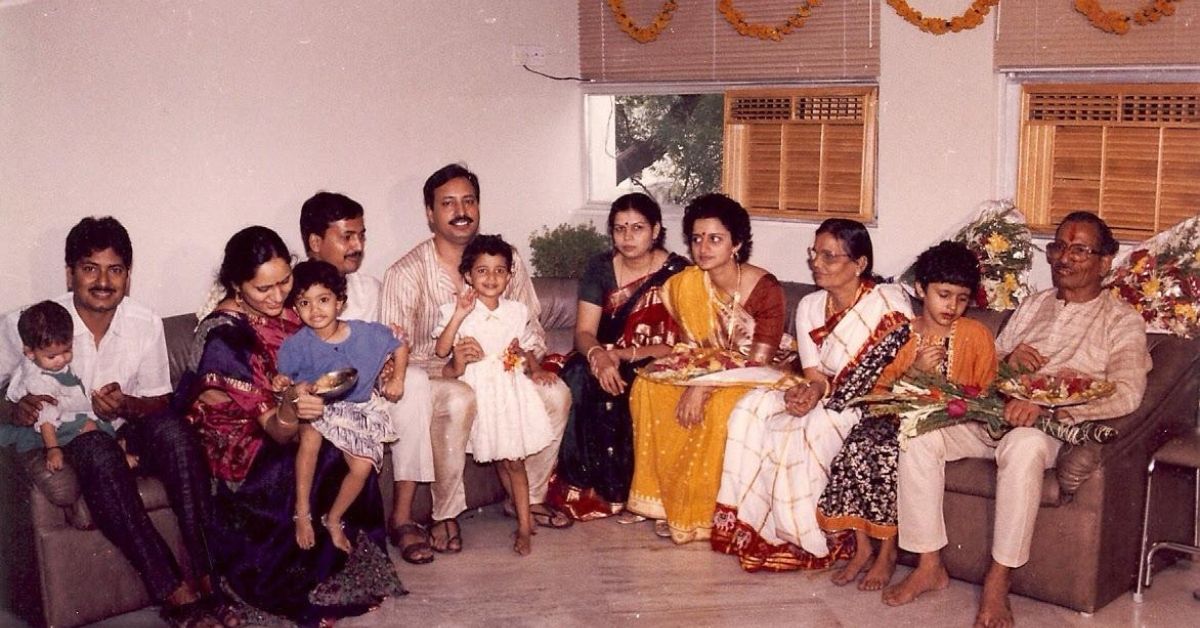 Jui has fond memories of her childhood days, when she spent time with her father and learnt a great deal about life from his stories
Jui has fond memories of her childhood days, when she spent time with her father and learnt a great deal about life from his stories
His profession was intrepid. But Jui and her siblings remained innocently oblivious of the perils their father navigated. “As a child, you think of your dad as Superman, who saves people. My father was always very cheerful at home, so nobody could tell that he was under any kind of pressure, even when he was,” Jui points out.
She commends her mother, Kavita Karkare, for holding fort in the home.
Kavita Karkare spoke truth to power and minced no words. In the aftermath of the 26/11 attacks, Kavita ordered a Right To Information (RTI) on the quality of the bulletproof jacket that her husband donned before he set out in pursuit of the terrorists, along with Ashok Kamte, Additional Commissioner of Police, Eastern Region, Mumbai and Vijay Salaskar, Police Inspector and encounter specialist — both of whom were also martyred in the encounter.
The family was informed that the bulletproof vest had “gone missing”.
Tremendous ambiguity followed in the aftermath of the attacks. People’s perspective was missing the point. They were discrediting the reputation of a man who had remained unflinching, confronting terror head-on and had lost his life in the bargain.
Karkare’s sacrifice was being undermined by blame games and sensationalised optics. The family was keen on cutting through the noise, and Jui’s book was a step in this direction. It’s an attempt at breathing life into a respectful narrative that honours her father’s indefatigable spirit.
‘He understood Mumbai’s heartbeat’
‘Papa gele’ (Papa is dead).
When Jui’s phone buzzed with this message on 26 November 2008, an adamant gut feeling refused to believe its verity. But the tickers on every news channel extinguished that last flicker of hope — they read ‘ATS Chief Hemant Karkare Dead. ATS Chief Hemant Karkare Shot Thrice in the Chest’. Thus began Mumbai’s mourning for a gallant officer, and Karkare’s family’s for their “six-foot-tall ‘Superman’ who was always chipper than ever, never left home without combing his bushy moustache, always ironed his clothes carefully and never had a hair out of place”.
Mumbai lost a hero. Jui lost hers.
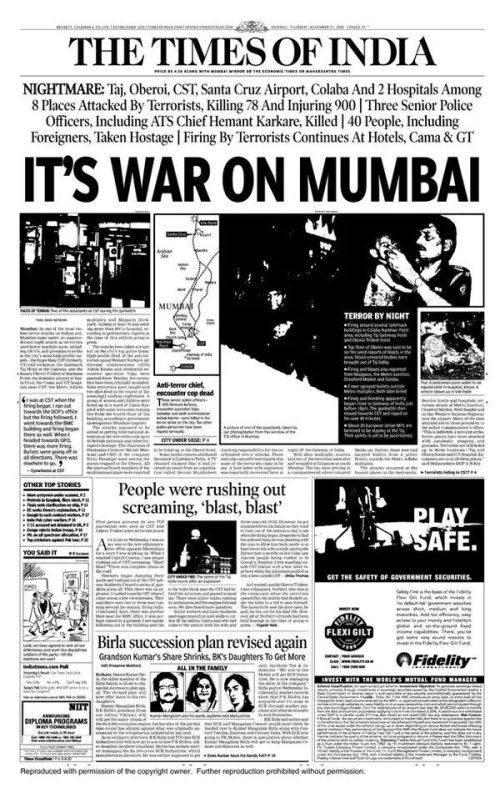 A Times of India coverage of the 26/11 terrorist attacks that struck Mumbai, Picture source: TOI
A Times of India coverage of the 26/11 terrorist attacks that struck Mumbai, Picture source: TOI
The flight back home — the 15 longest hours of her life — was spent reckoning with reality; she worried for her home city that was bleeding. Official figures state that 166 people, including fourteen police officers, two National Security Guard commandos, and four security personnel, were killed; hundreds were injured. The Mumbai skyline had held its breath for 60 long hours while the city was under the siege of terror, as gunshots reverberated through the air.
Memories of the last time she’d seen her Papa raced through Jui’s mind. It was four months ago, in July 2008, when her parents had travelled to Boston. “As I bid goodbye to Papa at the Boston Airport, I suddenly had a strong instinct to follow him like a little child. I would never have thought that four months later, my first visit to India after I moved to Boston after marriage would be for Papa’s funeral,” she writes. Hemant Karkare was given a funeral with full state honours.
Saying goodbye to Papa wasn’t just that; it was trading future dreams for grief and nostalgia, hoping time would take the edge off the pain. “While the wound is no longer raw, there are days when, suddenly, countless memories come rushing into my mind, and I am back to the place where it all started! The wound starts bleeding again,” she writes.
Mumbai healed in time, but the scars remain in the bullet-riddled buildings — Cafe Leopold in Colaba has preserved the bullet holes across its interiors — and in the fabric of the city, into which the sacrifice of the martyrs is deeply tied.
While penning the memoir, Jui felt it was only fair to reach out to some of these custodians of Karkare’s memories, including Ronnie Mendonca, the erstwhile Commissioner of Police, Mumbai, who called Karkare “the man who did not put courage under a lid”; Ar. Anant Gadgil, eminent political leader, Maharashtra Legislative Council (MLC), who cherished his routine morning walks with Karkare; the residents of Malegaon in Nashik, whom Karkare had personally helped during the 2006 Malegaon blasts; Karkare’s police comrade, Mr Dhote, who retired as Deputy Superintendent of Police in 2015 and had worked with Karkare in Chandrapur who spoke of how, in 23 months 22 hardcore Naxalites were arrested; Mr Gautam, who retired as Additional Superintendent of Police, Anti-Corruption Bureau, Nagpur, who spoke of how Karkare “never compromised on discipline and compassionately listened to his junior officers’ complaints, among others”.
Their missives from the past celebrate Karkare.
While society was privy to this leadership side, Jui got a glimpse of his softer stance — the Karkare who would surprise her with thoughtful birthday gifts, hug her when she hurt herself, build her hammocks in the garden, and even bring home a puppy — Jui named the Pomeranian ‘Sunny’. These memories are sacrosanct; she doesn’t have to reach too deep into her mental archives to retrieve them. They live centre stage.
“On my sixteenth birthday he gifted me a Swarovski pendant in the shape of a lock with a small gold key attached to it with a note which read, “May you find the key to unlock all your hopes and dreams, and you may not know it but the lock is within you, and the key is also within you,” she writes.
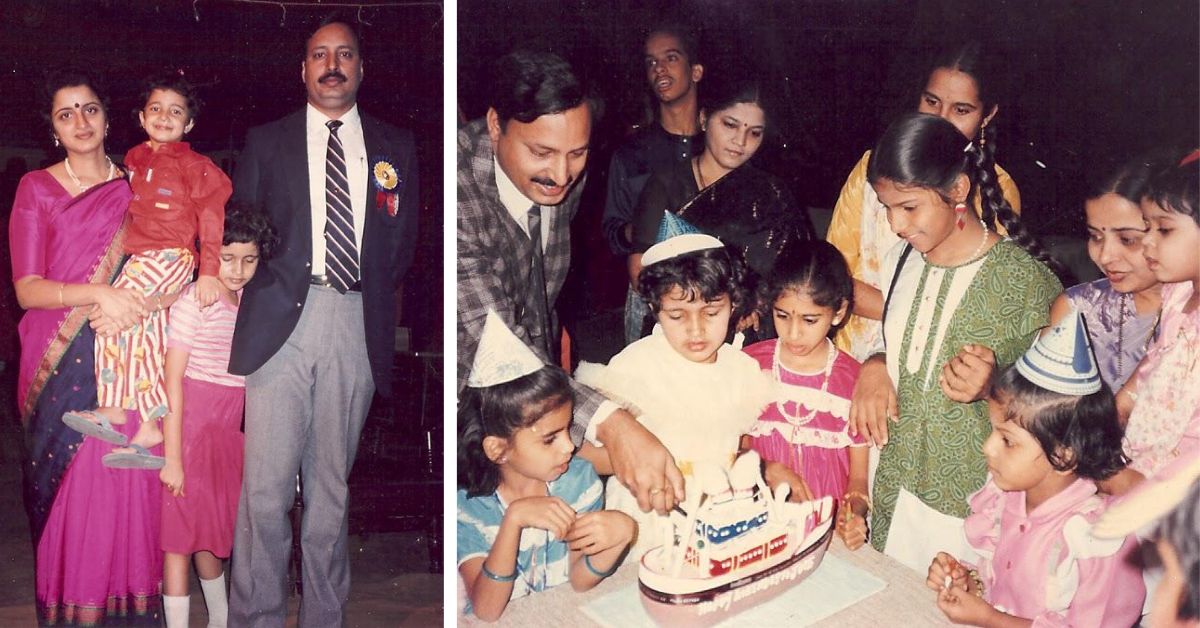 Whether it was birthday surprises or guiding his children with their career-related dilemmas, Hemant Karkare is remembered by his children for being a pillar in their lives
Whether it was birthday surprises or guiding his children with their career-related dilemmas, Hemant Karkare is remembered by his children for being a pillar in their lives
The siblings credit their dad for giving them the agency to dream. “Even when it came to our careers, or when someone would ask him for professional advice, he would say, ‘The scope lies in the person and not in the field.’ He’d worked as an engineer years before appearing for the UPSC and getting selected. He always maintained that giving your best to the field you choose is more important than focusing too much on the scope of the field you choose.”
His lessons live on in his favourite dialogue — “life is full of pluses and minuses”. His genius lay in his ability to bring an emotional depth to every conversation. Jui shares an anecdote, “During my engineering days, I did not score well, this one time. When I told Papa, he showed me his engineering report card and pointed out that he wasn’t among the top three. He told me that marks were not important, but one’s approach is.”
Karkare’s precision was razor-sharp on the field and off it, too. “Papa maintained well-manicured lawns, he had an eye for detail, and loved gardening. He encouraged my siblings and me to plant saplings,” Jui shares.
While in Chandrapur, he started dabbling in creating wood artefacts, accumulating driftwood, and chiselling them into beautiful art. The injuries he would sustain while working with the wood, or even during encounters, did not fluster him. They were his badges of bravery. But these moments that the family had with him were few and far between. Karkare’s first duty was to the people he served.
Jui would often ask him, “Don’t you get exhausted helping people?” He’d reply, “That’s why I became a police officer, because no other profession gives you the scope to help people as much as being in the police force.”
Jui’s reminiscing of her father is salted with admiration and tears, with laughter and grief.
Hemant Karkare was martyred. But his memory will live on in Mumbai’s skyline, and in the memoir of his daughter, whose words have immortalised him.
You can buy the memoir here.
Edited by Vidya Gowri Venkatesh; All pictures courtesy Jui Karkare Navare
News